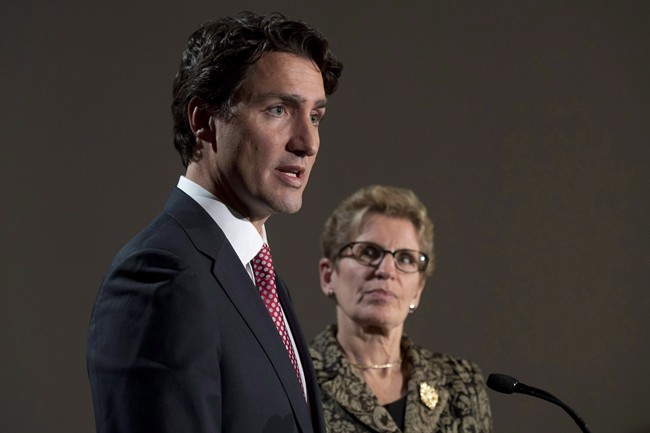TORONTO — The Conference Board of Canada says the proposed Ontario Retirement Pension Plan will mean long-term increases in income that offset the small negative effect on the economy over the near-to-medium term.

In a cost-benefit analysis of the Liberal government’s pension plan, the Conference Board says the increase in mandatory savings initially results in a period of reduced household spending as pension contributions lower family income.
READ MORE: Ontario premier says first conversation with Justin Trudeau will focus on pensions
The negative effect on Ontario’s GDP in the near term is partially offset by the fact that individuals are expected to reduce their RRSP contributions when they start paying into Ontario’s pension plan.
The Conference Board — an independent, not-for-profit applied research organization — says the impact on overall real GDP is also offset by a fall in imports as less household spending is used to buy foreign goods and services.
READ MORE: Ontario pension plan rules need to be clarified: employers
Expected decreases in Employment Insurance and Workplace Safety and Insurance Board payroll premiums “further mitigate the short-term economic impact” of the Ontario Retirement Pension Plan.
Mitzie Hunter, the province’s associate finance minister, says the report clearly shows Ontarians and the province’s economy will be better off under the Ontario pension plan, which goes into effect Jan. 1, 2017.
- What is a halal mortgage? How interest-free home financing works in Canada
- Capital gains changes are ‘really fair,’ Freeland says, as doctors cry foul
- Budget 2024 failed to spark ‘political reboot’ for Liberals, polling suggests
- Tesla’s net income drops 55% in first quarter amid falling global sales



Comments